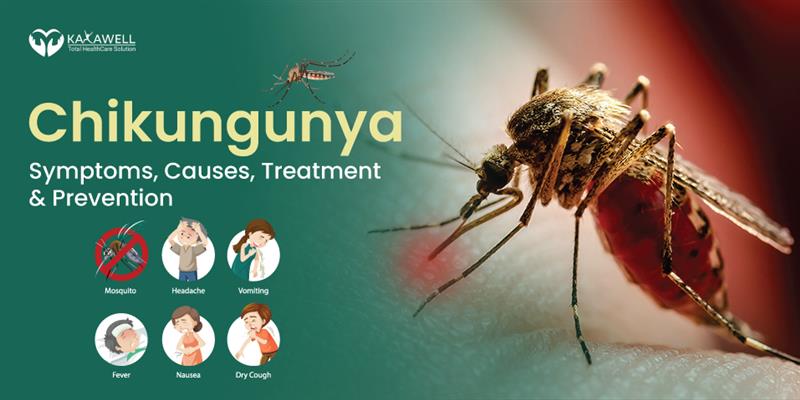Much like the most notorious dengue, chikungunya is also an infectious disease transmitted by a mosquito. Most of the time, chikungunya is not fatal but the suffering can be extremely traumatic. It induces fever and very serious joint pains which can last for several years to come. The discomfort is unbearable and can make it impossible for many patients to even walk properly.
Many chikungunya symptoms are akin to dengue and zika. Consequently, it can easily be misdiagnosed in places where both of these diseases are widespread. If your residence is close to any mosquito breeding areas, you are at a very high risk of chikungunya and other diseases transmitted by the mosquito such as dengue and zika. If chikungunya is not tested at the right time, the results of the laboratory don’t even reflect that. There is precisely no cure for chikungunya, World Health Organization reports because the disease care focuses on relieving the symptoms.
Symptoms
If a person is bitten by an infected mosquito, usually symptoms may appear within 4 to 8 days. They may also show up after 2 days or may not show up till 12 days.
City physicians believe the virus has spread, leading to more severe symptoms now than before. Chikungunya will usually start with an abrupt fever that is followed by joint pain. The pain in the joints can be debilitating for the condition of the sufferer as it can last for a very long period of time. The viral primarily affects finger joints on both hands and feet, resulting in swelling and acute pain. Sadly, in some cases, this pain can persist for months or years. The criticality and longevity of this pain decided if chikungunya will be acute, sub-acute or a chronic disease. In most of the cases, however, the patients recover.
Some patients also reported eye, heart, neurological and gastrointestinal complications in addition to pain in the joints. Nonetheless, instances of such allegations remain uncommon.
When chikungunya’s patient is an elderly person, the condition may become very serious and may even lead to the patient’s death.
Many times signs of chikungunya patients go unrecognized. They are also most frequently misdiagnosed especially in areas where other mosquito-related diseases, such as dengue, are prevalent.
However, the most common Chikungunya signs and symptoms include::
- Flu- chills, cough, headache and sore joints-Joint pain can occur especially in the hands, wrists, ankles and feet that can last from weeks to months and can even last for a year.
- Nausea
- Fatigue
- Rashes
When to see a doctor
If you think you or a family member could have chikungunya see your doctor, particularly if you’ve recently travelled to an area where there’s an ongoing outbreak. Your doctor can order blood tests to look for chikungunya or the like. If you’re sick with chikungunya, avoiding new bites on the mosquito can help prevent the spread of the virus.
Causes
Incidentally, both Dengue and Chikungunya are caused by mosquitoes such as Aedes aegypti and Aedes albopictus, two species that play havoc in the country. It is transmitted from one person to another with the bite of the female specie of the mosquito. Such mosquitoes are usually known to bite during daylight hours. At two points of time, early morning and late afternoon, the risk of getting bitten are the highest during the daylight hours. Though these mosquitoes are typically known to bite outdoors, Aedes aegypti can bite indoors as well.
Treatment
The virus is rarely lethal, but the symptoms can be serious and disabled. Most patients recover from fever within a week but it has been known that the joint pain has persisted for months. Even after 1 year, 20 per cent of patients report recurring joint pain.
There are no specific medicines for treating chikungunya; physicians simply recommend rest and plenty of fluids.
Over-the-counter medications help in relieving fever and joint pain. Including:
- Naproxen
- Ibuprofen
- Acetaminophen
For longer-lasting aches, physiotherapy may be helpful.
Prevention
If your residence is close to mosquito vector breeding sites, this is a very major risk factor not just for chikungunya but also for other diseases borne by mosquitoes. In these situations, there is a need for policy action and measures to ensure minimal risk.
Any natural or artificial sites containing water and which help mosquito breeding need effective and regular insecticide treatment. Flying mosquitoes should be sprayed over and insecticides should be applied to surfaces of the containers and nearby objects.
Also, if the proximity of the site and any place of residence is more than it should be, the government needs to ensure that the community is moved somewhere else.
Apart from the measures to be taken at the level of the authorities, there are other specific steps that you should take. Here are a few tips to protect you from Chikungunya:
- Keep yourself covered and minimize skin exposure
- Applying skin repellents can be cover exposed skin
- Keep a check on your surroundings
- Don’t let water accumulate
- Stay extra safe during daytime
- use nets to avoid mosquito bites
- Keep the environment clean and search for overflowing trash bins
- Change the water regularly in flower vessels to prevent mosquito breeding
- Keep back the toilet seats when not in use
- Shower daily and use unscented shampoos. Mosquitos are believed to be attracted to smells like perfume and sweat
- Purchase mosquito repellent that contains DEET, especially if you have a balcony garden.
- Try growing marigold and lemongrass. They are natural insect repellents
- Use smokeless mosquito repellents. Using smoke coils outdoors or in well-ventilated areas

Leave a Reply
You must be logged in to post a comment.